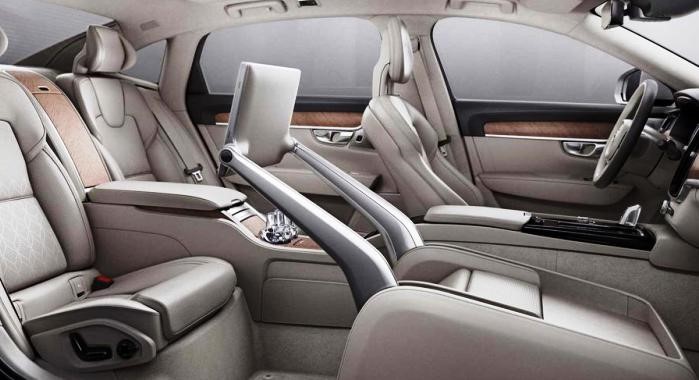6 Points That Show How Car Interiors Has Changed With Time

Automobiles have existed in some form or other since the late 1700s. What began as a horseless carriage powered by steam has come along way since then. Modern cars are a page from a science fiction novel and are jam-packed with technological whiz-bangs. Today’s vehicles can drive and even think for themselves. Today, anyone sitting in a car is driving a machine with hundreds of years of innovation packed into it. If you are sceptical simply recline your seat.
The most obvious advancements are seen in the interior of a car. These innovations are taken for granted, however, because modern drivers have had them all their lives. Here are six main innovations to a car’s interior that demonstrate how far automobiles have come.
Safety
Every safety feature loaded into a car came decades after automobiles hit the mainstream. Early car interiors are bereft of seat belts and airbags. Seat belts did not come standard in the first automobiles, and were introduced in 1956. The first country to require them in cars was Australia. Airbags came about in 1971 and were introduced first by Ford to curb injuries. Heaters were also a late addition, and it took a while before the defrost feature was thought of. This is considered a safety feature as it provides visibility by clearing fogged windows. Modern drivers today find these features so common they are surprised to learn they were added later.
Climate Control
The 1950s were not just the birth of seat belts but also the interior heater. The first automobiles had no climate control whatsoever. In fact, early cars did not even have windows. The interior of a car became closed off in the 1920s. This would allow for some control of temperature but not much. It really only served to keep the rain out. In the 50’s heaters slowly became a standard interior amenity. The following decade air-conditioners popped up, but only in certain luxury cars. It would be the 70’s before they would become standard. Today’s driver almost has complete control over their environment. Passengers can even set their climate to an individual temperature with seat heaters, adjustable vents, and separate climate controls.
Technology
Today’s vehicles have sensors built into them that will stop your car for you if there is the threat of collision. The top selling point of any vehicle today is technology. Be it a luxurious car or the latest range of SUVs; they now come with a computer screen built into the dash that can run your life. Cars can even talk to you and connect you with emergency services. Some of them actually drive themselves. We live in the days of the WiFi hotspot, but those days began in the 1980s.
The ’80s were the birth of the computer. Eventually, trip computers were added to cars. Some 80’s cars even had voice warnings. They did not, however, have a rear camera so you could watch yourself back up. Most early tech from the ’80s to the 00’s was focused on navigation.
Comfort
This may seem like an odd category but early cars were not comfortable. The seats were leather, they did not adjust, there was no climate control, and most passengers were stuffed in like sardines. More cabin room was added in the ’40s allowing drivers to stretch their legs a little. The 1960s saw the first support-focused seats. It was also the year they added more padding. The fact that you can comfortably sleep in your car seat is an unnoticed testament to automobile advancement.
Entertainment
The first car radios came out in the 1920s. They had to be bought separately and were not part of a car’s interior. They started being attached to the dash in the 1950s. Cassette players became attached in the ’80s, with CD-players replacing them in the ’90s. Television sets found their inclusion in the ’80s as well but were also independent additions. Passengers today enjoy plasma screens fixed into the ceiling or the back of the front car seats. Radios can connect to a satellite, still play CD’s, but can also hook up to smartphones. Today’s young people have no idea how good they have it. Just ask any 80’s kid if they had trouble connecting to WiFi in their car growing up.
Fundamentals
Another telling point of advancement is all the little things drivers take for granted. Today’s cars have locking mechanisms in their interiors. Originally those did not exist. Early Model T’s did not have passenger windows. Wind up windows came out in the 1930s with electric windows coming out decades after that. The term automatic is a very recent classification. You can recline your seat and adjust its distance from the wheel. This was not an option in early cars. In fact, most of the buttons and knobs on your dashboard came about after the Model T. The ability to engage windshield wipers and even activate your turn signal is an innovative privilege.





